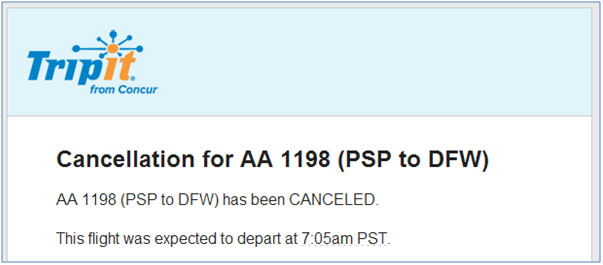
WEATHER
Last week something happened, which gave me pause. It wasn’t about the weather, but how several people reacted to it. Last month almost 50,000 U.S. airplane flights were cancelled due to weather. And things aren’t getting much better this month.
AIRPLANES
I am no stranger to weather negatively impacting travel plans. Airlines cancel flights because it is dangerous to fly, even though they lose millions of dollars when storms hit. As Francis Bacon wrote a few hundred years ago,
Nature, to be commanded, must be obeyed
This means we can control some aspects of nature; however we must obey the laws of nature. We can fly airplanes, but weather can bring them to the ground. Or as I learned many years ago,
A crash is a landing where the vertical velocity is so great, and the time spent reducing it to zero is so small, that the forces acting result in structural failure.
Cancelled flights due to weather may disrupt my plans, but they are sometimes necessary.
The reason for this post is the reaction of several passengers last week when our flight from Charlotte, North Carolina to Pensacola, Florida was cancelled. Not only was this flight cancelled, but nearly every flight that night into Florida from all over the U.S. was cancelled. The “Departure” boards were full of “Flight Cancelled” message.
So I walked over to the customer service desk to see what my options were, hoping that I could catch an early morning flight. A couple people were arguing with the agent, demanding transportation to Florida. They had purchased tickets, and thus demanded transportation to Pensacola immediately. They did not care about weather, physics, or reality. They had bought tickets and felt it was the airline’s responsibility to deliver them to their destination. Weather, physics, or reality did not matter — someone needed to whisk them to Florida immediately. Weather wasn’t their problem, it was the airline’s problem.
Irrational behavior.
And then they demanded lodging and food, since the airline reneged on their contract; the airline ticket. Of course had these idiots bothered to check airline policies, they would have realized the airlines normally do not provide lodging, food, or even transportation to or from the airport for most flight cancellations. Finally, they left, and it was my turn.
I apologized to the agent for their behavior, stating her job was difficult at best. She took my ticket, and immediately booked me on an early morning flight. I asked if she could help with lodging, and I received a free voucher to a very nice hotel. Businesses like to keep good customers, and by behaving in a civilized and rational manner, the agent realized I was one of those good customers, and taking care of good customers builds loyalty.
FREE WILL
Humans are unique in the animal world, as we are the only species that can think; that is: exercising reason and possessing volitional consciousness we make choices to ensure survival – versus relying only on instinct. We can choose to think, or choose not to think; it is up to each of us. This is free will.
Our decisions, when we decide to think, determine our destiny. Good choices usually mean a good life. If we make bad choices, then the outcomes may not be so good. They can even end our lives. By thinking and making good choices, we recognize those things we cannot control, and we control those things we can. We become accountable for our thoughts. It is our job to think for ourselves; not our parents, friends, family, or the government’s job. We don’t have control over everything in our lives, but there is a broad range of things we do have control over – should we make the effort to think, and to think logically.
BACKPACKING
So what does this have to do with backpacking?
Plenty.
When we are out in the wilderness, we need to be self-sufficient. We need to make good choices. Good choices come from knowledge, skill and experience. And it is our responsibility to learn what is to be done when in the wilderness. We cannot always rely on other people to help or rescue us; cell phones to deliver us from danger; or other devices to save us. We need to rely on our brains. This survival in the wilderness, for the most part, is not difficult if we have planned and applied our knowledge, to include taking the necessary gear to sustain us. And of course, the uncontrollable in life can throw obstacles in our path; but usually knowledge, rational and logical thinking will get us through most trying situations.
But we have to work at it. We have to take responsibility to learn before we leap. We need to think. We cannot demand nature to keep us safe.
By exercising our free will in a logical manner, wilderness travel becomes nothing to fear, but something to enjoy.
